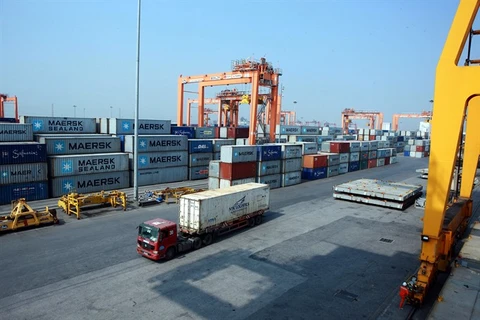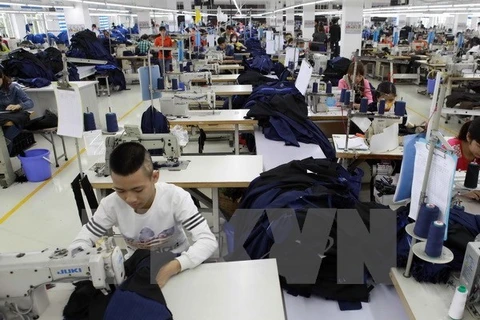Hanoi (VNA) – Fiscal and monetary policies have been on the right track since early this year, members of the National Advisory Council on Fiscal and Monetary Policies confirmed at their quarterly meeting recently held in Hanoi.
They reached a consensus on the issue after reviewing the recent global and domestic economic developments such as the US’s Federal Reserve (FED) raising USD interest rates, and increasing trade protectionism and its impact on the domestic economy.
The economists recommended that the government should regularly update and evaluate information from other economies to make strategic moves.
They viewed that though the FED’s interest rate rise, the US government’s withdrawal from the Trans-Pacific Partnership (TPP) and increase in the prices of commodities in the world market were yet to hurt the Vietnamese economy much in the first quarter this year, but will affect the control of inflation, exchange and interest rates in the coming time.
The government must maintain the macro-economic stability and stay consistent in steering fiscal and monetary policies since early this year and while reacting promptly to external policy changes, they said, asking for speedy disbursement of public investment as well as reviewing the Laws on Public Investment and Construction to clear barriers to the process.
As average inflation tends to go downward, the government was advised to oversee and adjust prices of public services, including electricity supply.
In the meantime, the government should prioritise the restructuring of five key areas, including the commercial banking system, public investment, State-owned enterprises, budget collection and spending, and operation of public services establishments.
Deputy Prime Minister Vuong Dinh Hue, who chairs the Council, asked the ministries of Finance, Planning and Investment, and the State Bank to refine socio-economic reports and supplement more norms regarding growth quality to be submitted to the government’s monthly meeting slated for early April.-VNA
They reached a consensus on the issue after reviewing the recent global and domestic economic developments such as the US’s Federal Reserve (FED) raising USD interest rates, and increasing trade protectionism and its impact on the domestic economy.
The economists recommended that the government should regularly update and evaluate information from other economies to make strategic moves.
They viewed that though the FED’s interest rate rise, the US government’s withdrawal from the Trans-Pacific Partnership (TPP) and increase in the prices of commodities in the world market were yet to hurt the Vietnamese economy much in the first quarter this year, but will affect the control of inflation, exchange and interest rates in the coming time.
The government must maintain the macro-economic stability and stay consistent in steering fiscal and monetary policies since early this year and while reacting promptly to external policy changes, they said, asking for speedy disbursement of public investment as well as reviewing the Laws on Public Investment and Construction to clear barriers to the process.
As average inflation tends to go downward, the government was advised to oversee and adjust prices of public services, including electricity supply.
In the meantime, the government should prioritise the restructuring of five key areas, including the commercial banking system, public investment, State-owned enterprises, budget collection and spending, and operation of public services establishments.
Deputy Prime Minister Vuong Dinh Hue, who chairs the Council, asked the ministries of Finance, Planning and Investment, and the State Bank to refine socio-economic reports and supplement more norms regarding growth quality to be submitted to the government’s monthly meeting slated for early April.-VNA
source























